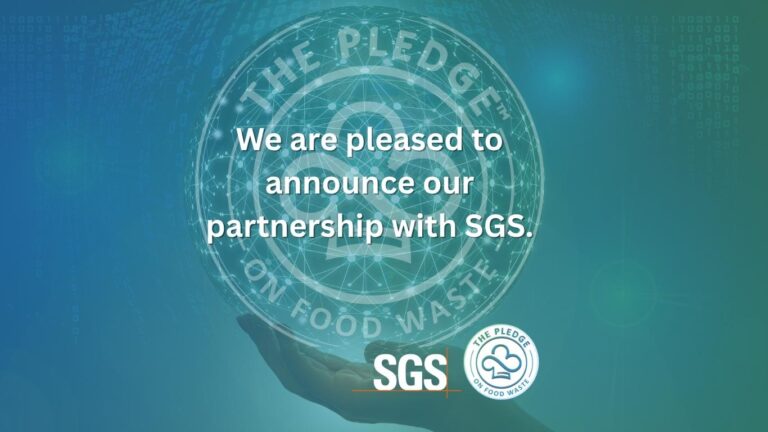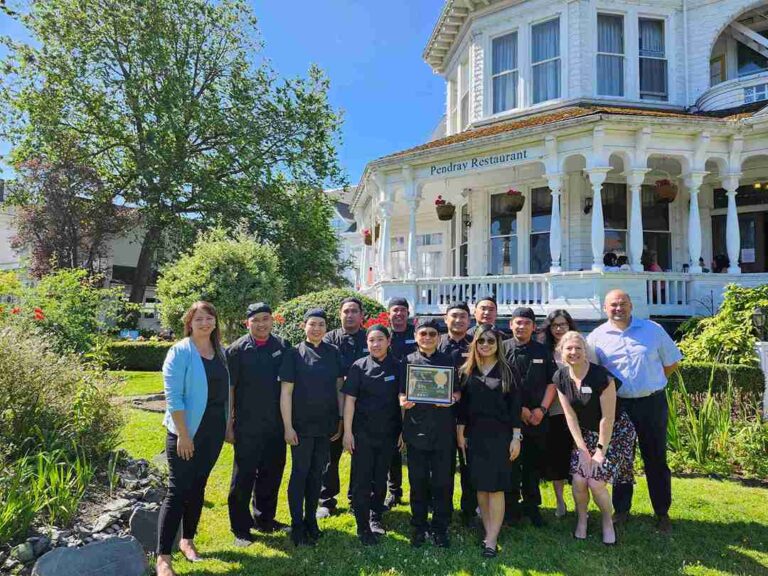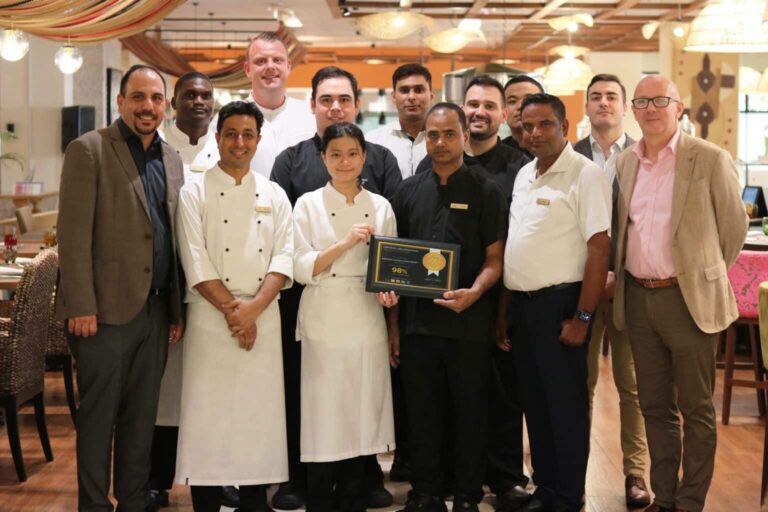By now, we all know the world has a food waste problem. It’s easy to feel like the solution is either too abstract or too big to tackle. Many businesses, especially those in the hospitality sector, often feel overwhelmed by the sheer scale of the problem. However, a significant solution emerges with targeted food waste certification. This approach transforms an abstract global concern into a tangible, actionable plan for hotels, restaurants, and catering services. Meet the powerful alliance making this happen: SGS and The PLEDGE on Food Waste.
SGS, the world’s largest testing, inspection and certification company, and The PLEDGE on Food Waste, a purpose-built, third-party audited food waste certification program laser-focused on helping restaurants, hotels and caterers cut the crap (a.k.a. waste) from every corner of their kitchens. Together, they’re bringing sustainability out of the boardroom and into the back-of-house.
But first, why should anyone care about another certification?
Hotels, with their diverse culinary offerings and high guest turnover, are significant contributors to global food waste. This waste is not just an environmental issue; it carries substantial financial and reputational costs. Uneaten buffet items, overstocked pantries, mismanaged inventory, and plate scraps all contribute to a colossal amount of discarded food. This translates to wasted resources like water, energy, and labor, directly impacting a hotel’s bottom line. Furthermore, consumers increasingly demand sustainable practices from businesses. Hotels failing to address their environmental footprint risk losing valuable eco-conscious guests. Therefore, tackling food waste in hotel operations is crucial for both profitability and environmental responsibility.
Benjamin Lephilibert, co-founder of The PLEDGE, clarifies the challenge. During a recent joint webinar with SGS, he noted,
“Certifications can seem tedious. However, this one creates genuine change, not merely checks boxes.” This partnership aims for practical implementation rather than just theoretical compliance.
A Partnership That’s More Than Paperwork
SGS has been around for over 145 years, with labs and teams spread across 115 countries. They’re the people businesses call when they need to be sure about safety, about quality, about sustainability claims. But their partnership with The PLEDGE goes beyond their usual lab coat routine. It’s part of SGS’s wider IMPACT NOW initiative, a global framework aimed at integrating sustainability deeply into business operations not just for show, but for good.
Through this collaboration, SGS acts as an official certification body, offering independent audits and pre-certification assessments to restaurants and food service businesses looking to slash food waste without sacrificing service, style, or sanity. These audits help organizations slash food waste in hotel settings and other food service environments without compromising service quality, style, or operational efficiency. The auditing process follows a clear, structured framework by The PLEDGE. It comprises 95 criteria organized across seven core pillars, covering every aspect from initial food preparation and stringent inventory control to comprehensive staff training and meticulous plate waste monitoring.
A Webinar Worth Watching
In a webinar hosted just last month, Evangelia Komitopoulou of SGS and Benjamin Lephilibert unpacked why this partnership matters and how it’s already helping hospitality businesses worldwide reduce waste by up to 30%.
What stood out? The realism.
“It’s not about blaming the buffet,” Benjamin joked during the session. He emphasized that buffet waste typically accounts for only 10 to 15% of total food waste in hotel establishments. The actual significant culprits are poor forecasting, overproduction, and insufficient monitoring. According to their data, most kitchen teams underestimate how much they’re wasting by a factor of three to five. That means your kitchen might be tossing out 300% more than you think.
The PLEDGE food waste certification forces a reckoning with a little help. “We provide businesses with a clear roadmap,” Bejamin stated. This roadmap outlines not only what needs fixing but also how to implement solutions and ensure engagement from every team member, from dishwashers to general managers. While the process involves compliance platforms, audits, and mandatory Key Performance Indicators (KPIs), the overall atmosphere is empowering. Make sustainability something you want to talk about. Not just in annual reports, but in staff briefings, marketing decks, even on the menu.
Tangible Benefits for Hotels
Implementing a robust food waste certification program yields multiple benefits for hotels:
- Cost Savings: Reducing waste directly cuts down on purchasing costs, labor expenses for preparation, and disposal fees. These savings can be substantial, improving profit margins.
- Environmental Stewardship: Minimizing food waste lessens the hotel’s carbon footprint, conserves water, and reduces landfill contributions, aligning with global environmental goals.
- Enhanced Brand Reputation: Hotels with certified food waste reduction programs attract eco-conscious travelers and improve their brand image, leading to increased customer loyalty and positive publicity.
- Operational Efficiency: The structured framework of the certification improves kitchen management, inventory control, and staff training, leading to more streamlined and efficient operations.
- Employee Engagement: Involving staff in waste reduction initiatives fosters a sense of purpose and teamwork, boosting morale and creating a more sustainable workplace culture.
For many food businesses, food waste feels like background noise, something unavoidable. But with the right framework, reducing waste becomes a lever. One that saves money, builds team culture, and sends a strong message to eco-conscious diners.
Achieving Zero Waste: A Measurable Goal
And perhaps that’s what makes this partnership interesting. It’s not about creating a shiny sticker for a website. Instead, it makes “zero food waste to landfill” a normal, measurable, and entirely achievable goal. While attaining this objective requires significant effort and meticulous data management, the commitment to the food waste certification process provides the necessary structure and accountability. This certification transforms a challenging aspiration into a series of manageable, impactful steps.
Because at the end of the day, saving the planet might start with your soup stock.
Follow The PLEDGE on Food Waste:






